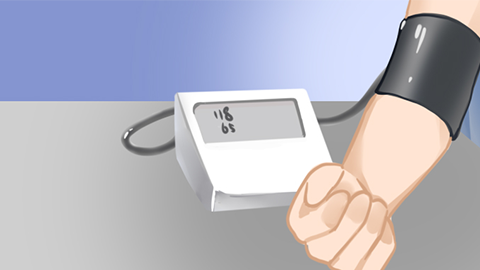What to do about diabetes complicated with hypertension
Generally, the management of diabetes combined with hypertension requires interventions targeting underlying causes. Common causes include insulin resistance, age-related physiological decline, high-salt diet, obesity, and kidney damage. It is recommended to seek medical attention promptly, identify the specific cause, and then improve the condition under a doctor's guidance through general measures, medications, and other treatments. Detailed analysis is as follows:

1. Insulin Resistance: Reduced insulin sensitivity leads to elevated blood glucose levels and also affects vascular elasticity, contributing to hypertension. Daily management should include increased physical activity—aim for at least 150 minutes per week of moderate-intensity aerobic exercise such as brisk walking or swimming—and weight control to reduce insulin resistance.
2. Age-Related Physiological Decline: With aging, pancreatic function declines and blood vessels lose elasticity, increasing the risk of both hyperglycemia and high blood pressure. Maintain regular sleep patterns, avoid staying up late, monitor blood glucose and blood pressure regularly, and undergo relevant tests every three months.
3. High-Salt Diet: Long-term excessive salt intake leads to sodium and water retention, increased blood volume, and elevated blood pressure. It may also worsen vascular damage caused by diabetes. Limit daily salt intake to less than 5 grams, avoid pickled foods and processed meats, and consume more fresh vegetables and fruits.
4. Obesity: Excess body weight increases the burden on the pancreas, leading to elevated blood glucose, while also compressing blood vessels and increasing peripheral vascular resistance, which can trigger hypertension. Weight loss through balanced diet and exercise is recommended. If weight reduction is difficult, medications such as orlistat capsules, liraglutide injection, or semaglutide injection may be used under medical supervision to assist in weight management.
5. Kidney Damage: Poor long-term control of diabetes can lead to diabetic nephropathy, where impaired kidney filtration function results in sodium and water retention, further elevating blood pressure and creating a vicious cycle. Patients should follow medical advice to use medications such as metformin sustained-release tablets, glimepiride tablets, or insulin injections to control blood glucose, along with antihypertensive drugs like valsartan capsules, irbesartan tablets, or amlodipine besylate tablets to manage blood pressure and protect kidney function.
In daily life, maintain a diet low in fat and sugar but rich in fiber, and avoid smoking and alcohol consumption. Keep emotions stable and avoid anxiety or stress. Take prescribed medications regularly without adjusting dosages independently. Comprehensive management helps maintain stable blood glucose and blood pressure levels and reduces the risk of complications.










